.png)
.png)
Accurate visual field documentation is critical for proving medical necessity, preventing denials, and supporting proper billing and coding in eye care practices.
Keep reading%20(1).png)
%20(1).png)
Discover the types of color blindness, how to test for them, and why accurate color vision exams matter in eye care.
Keep reading.png)
.png)
CPT 95919 defines quantitative pupillometry, replacing penlight exams with precise, automated pupil reflex testing. This reimbursable code supports neurology, ophthalmology, and critical care settings. With Virtual Field, pupillometry becomes fast, portable, and seamlessly integrated into your diagnostic workflow.
Keep reading

CPT 92083 covers extended automated visual field exams like the 24-2C, Esterman, and Full Field 120. This comprehensive test is essential for monitoring glaucoma progression and neurological visual field loss. With the Virtual Field headset, practices can deliver billable, portable, and patient-friendly VR visual field testing that integrates seamlessly into existing workflows.
Keep reading

CPT 92082 represents intermediate threshold perimetry — the go-to test for suspected glaucoma and documented visual field loss. In this guide, we break down proper documentation, billing workflows, and Medicare reimbursement so you can avoid denials while improving patient care. See how Virtual Field makes threshold testing faster, easier, and more accurate.
Keep reading.png)
.png)
CPT 92081 is the limited visual field screening exam used for routine vision checks and preventive care. This blog explains what the code covers, when to use it, how to document correctly, and how Virtual Field helps practices streamline testing and maximize reimbursement.
Keep reading

Insurance write-offs drain thousands from eye care practices each year. This blog shares 9 practical, proven strategies to reduce denials, improve coding accuracy, and strengthen revenue cycle management to stop revenue leakage and boost profitability.
Keep reading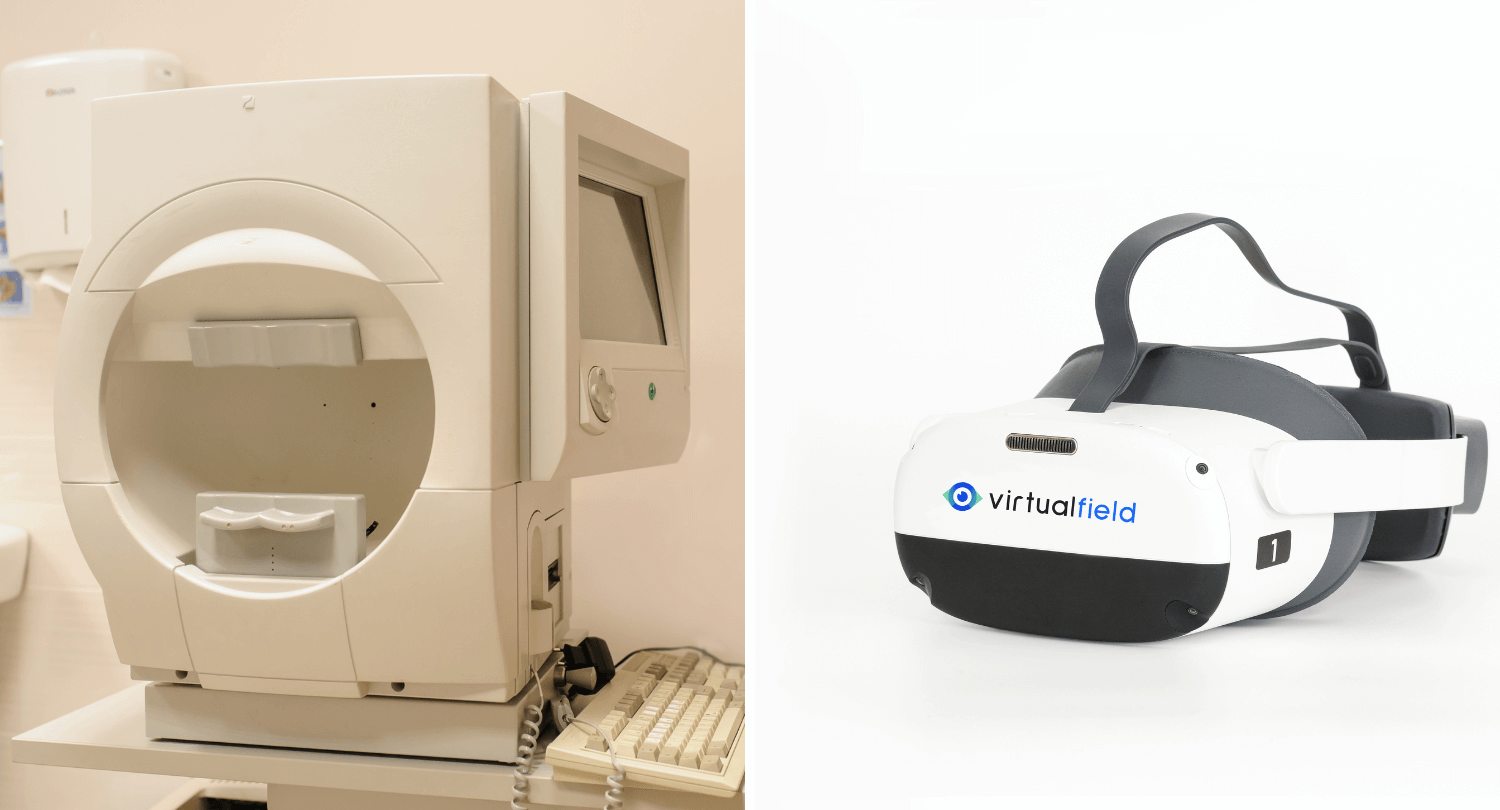

The Humphrey Visual Field Analyzer has long been the standard — but its high cost, dark-room requirements, and service contracts make it a relic of the past. Discover why practices are replacing Humphrey with Virtual Field, a portable, cost-effective, and clinically validated alternative that delivers ROI in weeks, not years.
Keep reading

Medicare cuts and new rules are reshaping visual field testing in 2025. Learn the latest CPT code updates, coverage limits, and documentation essentials to keep your practice compliant and profitable.
Keep reading.png)
.png)
Headed to Orlando for the ASOPRS Fall Symposium 2025? We’ve pulled together everything you need to know, including dates, ticket pricing, hotels, travel logistics, and where to find Virtual Field at booth #208.
Keep reading

Headed to Boston for Academy 2025? We’ve pulled together everything you need to know—from dates and ticket pricing to hotels, travel logistics, and where to find Virtual Field at booth #1332.
Keep reading

AAO Imagine 2025 is the must-attend ophthalmology event of the year. Discover the agenda, registration costs, hotel options near the convention center, and how to connect with Virtual Field at the Expo.
Keep reading

Prepare for Vision Expo West 2025. This article provides everything you need to know about this year's event, including the agenda, ticket prices, where to stay, and where to find Virtual Field on the Exhibit Hall floor.
Keep reading

GLP-1 medications like Ozempic, Wegovy, and Mounjaro are transforming diabetes and weight loss care — but they may also carry rare vision risks. Learn what eye-care professionals need to know about ocular complications, risk factors, and when to add visual field testing.
Keep reading

Glaucoma malpractice claims are among the most costly in optometry. This article explores the legal risks of missed glaucoma diagnoses and how proactive visual field testing, including virtual solutions, can strengthen clinical care and reduce liability.
Keep reading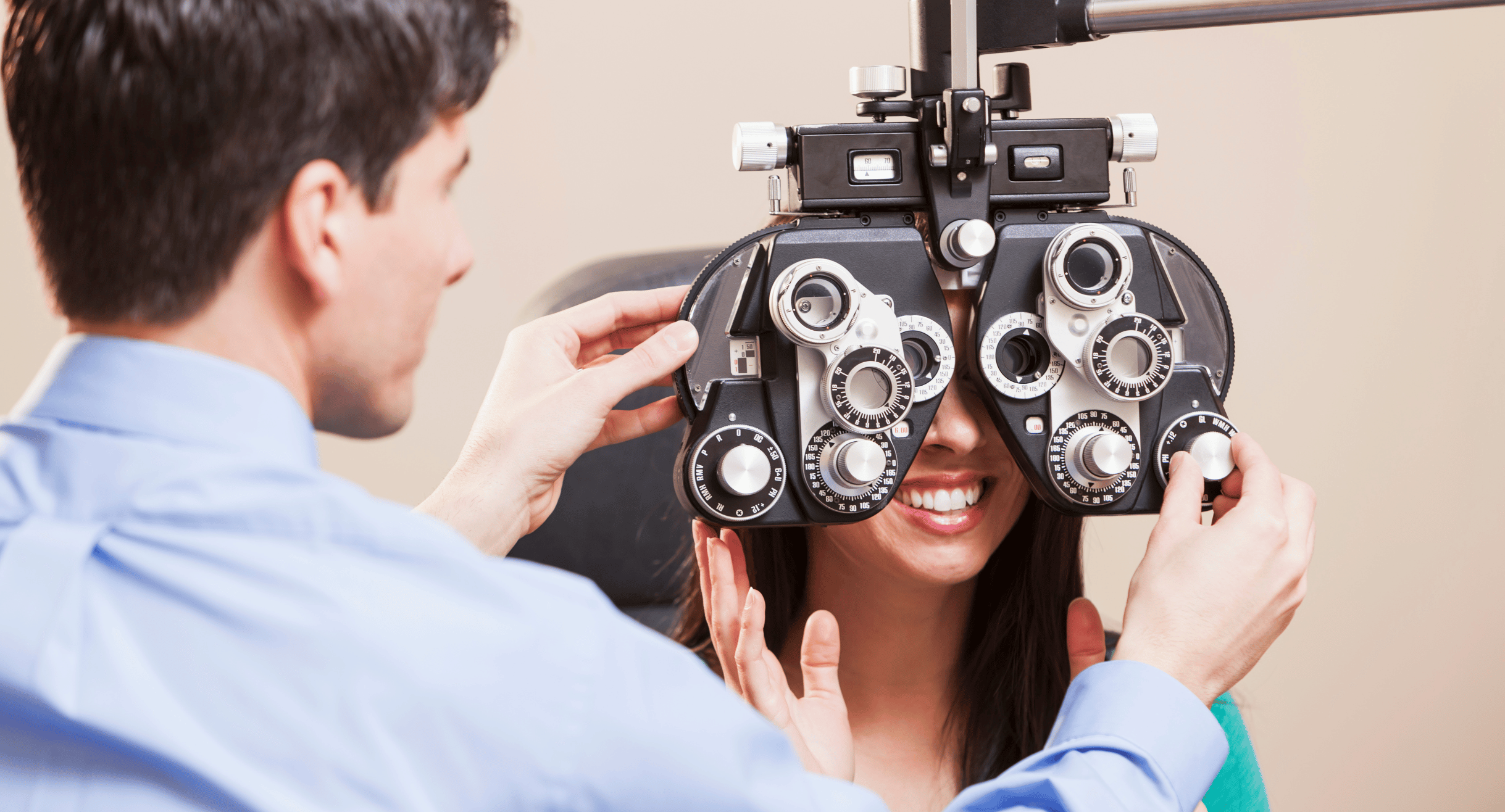

August is National Eye Exam Month—a powerful opportunity to go beyond basic refraction and highlight the clinical value of functional vision testing. In this blog, we explore how adding virtual visual field assessments to routine exams can uncover early signs of glaucoma and neurological conditions while streamlining patient care. Discover how to engage more patients, elevate your diagnostic approach, and make the most of this awareness month.
Keep reading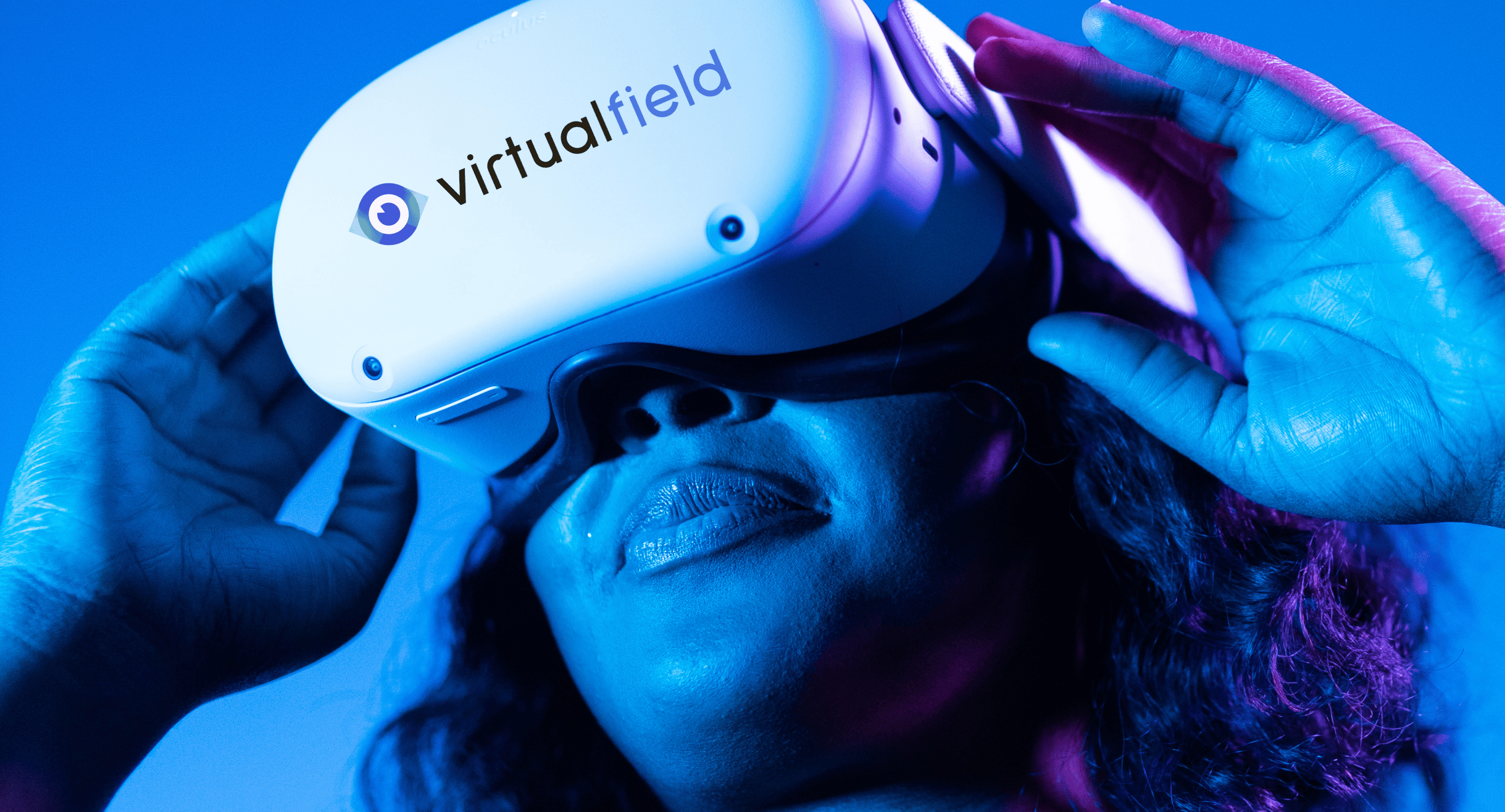

Step-by-step guide for optometrists and ophthalmologists to integrate virtual visual field testing into their practice. Improve workflow, increase revenue, and enhance patient care with FDA-registered VR perimetry solutions like Virtual Field.
Keep reading

Discover why visual field testing is vital in every comprehensive eye exam and how Virtual Field’s portable VR headset delivers fast, patient-friendly perimetry for early glaucoma detection and optic nerve assessment. Integrating functional visual field testing into routine eye care enhances diagnostic accuracy, supports progression analysis, and elevates practice efficiency.
Keep reading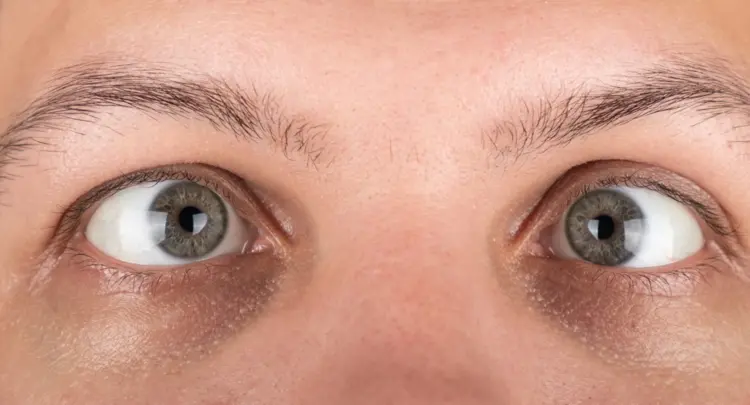

Strabismus affects more than appearance — it can impair vision, depth perception, and daily function. This guide explores how to diagnose and treat it with precision.
Keep reading

Learn how stereopsis — the ability to perceive depth — impacts everyday activities and why early detection matters. This blog explores how visual field testing and advanced stereopsis tests using real-time eye tracking can uncover misalignments and improve patient outcomes.
Keep reading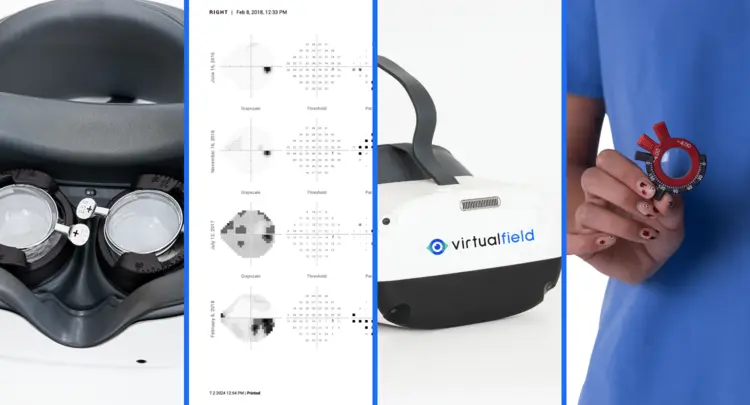

This guide compares the top visual field devices on the market—including both traditional tabletop models and modern portable headsets. It explores key considerations like test coverage, comfort, portability, EMR integration, customer support, and ROI to help eye care professionals select the best fit for their practice.
Keep reading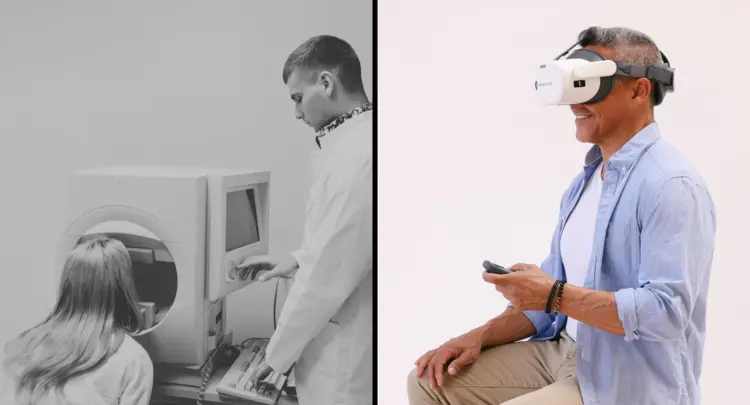

Standard Automated Perimetry has long been the go-to, but for cataract patients, Virtual Reality Kinetic Perimetry may offer a more comfortable, accurate alternative. Learn how both methods stack up—and how to choose the right test for your patients.
Keep reading

Packed schedules and outdated workflows can cost your practice valuable time and revenue. This guide shares smart, proven strategies to streamline operations, optimize diagnostic workflows, and reduce burnout with tools like Virtual Field, designed for modern eye care efficiency.
Keep reading

A step-by-step guide to re-baselining visual field patients for doctors ready to migrate from a traditional tabletop perimeter to a virtual visual field solution.
Keep reading

Want to run a smarter, more efficient eye care practice? Learn how real-time data analytics can optimize scheduling, streamline visual field testing, and improve profitability while enhancing patient care.
Keep reading

Traditional visual field testing isn’t designed with kids in mind. This blog explores how virtual reality-based testing creates a more accurate, less stressful experience for pediatric patients, improving outcomes, reducing anxiety, and helping clinicians better engage children and their families.
Keep reading

Insurance audits targeting eye care practices are increasing in frequency. Learn what’s triggering them—and how tools like Virtual Field help you stay compliant, document medical necessity, and protect your practice from costly denials or recoupments.
Keep reading

Mastering billing and coding in a multi-specialty eye care clinic takes more than basic knowledge—it requires strategic integration between testing, documentation, and reimbursement. Learn how to reduce denials, accelerate cash flow, and empower your team with practical tips and tools from Virtual Field.
Keep reading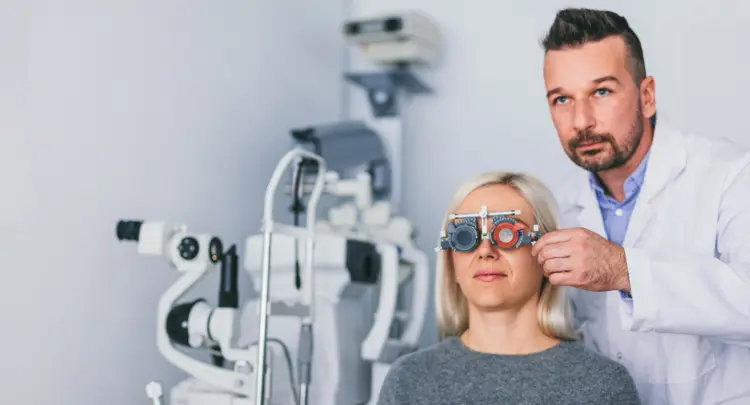

Discover how comprehensive eye exams drive higher revenue and better patient outcomes. Learn which services are billable, how to maximize ROI, and why these exams are vital to your eye care practice's financial success.
Keep reading

Discover how eye care practices can boost patient retention through exceptional service, personalized care, modern technology, and clear communication. Build lasting loyalty and long-term success.
Keep reading

Why Eye Care Providers May Want to Consider Visual Field Testing Pre and Post-Cataract Surgery
Keep reading

Learn the value that virtual visual field testing provides to help diagnose and treat cataract patients living in nursing homes.
Keep reading

Visual field and EOM are two vital tests that eye doctors can use to help diagnose and monitor concussion-related symptoms in patient athletes.
Keep reading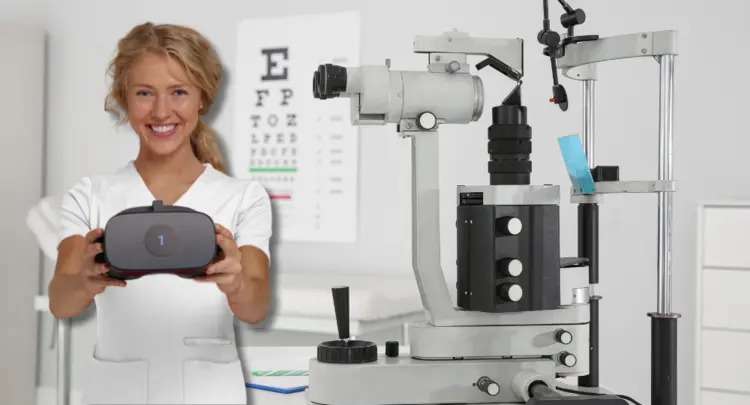

How to choose your Virtual Field Subscription, trial Virtual Field, and scale it for the needs of your practice.
Keep reading

In the fast-paced world of eye care technology, staying at the forefront of innovation is crucial. Virtual Field has continuously pushed the boundaries to provide eye care professionals with cutting-edge solutions. In this blog, you’ll be taken on a chronological journey through the significant software and hardware updates that have shaped Virtual Field's remarkable evolution.
Keep reading

We’re pleased to be a sponsor of the American Society of Cataract and Refractive Surgery (ASCRS) annual meeting. Stop by and meet our team and experience our Virtual Field.
Keep reading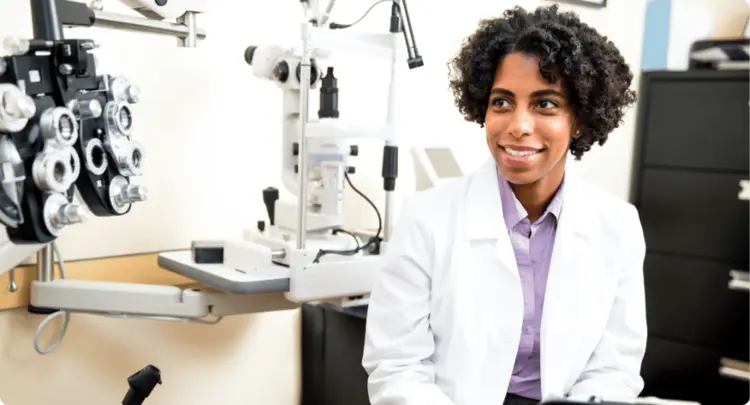

This guide explores how visual field exams extend beyond glaucoma, uncovering their broader applications and valuable benefits for patients and practices.
Keep reading

Eye diseases are often influenced by various factors including genetics, environmental conditions, lifestyle, and access to healthcare. Certain diseases can also vary within different populations and communities, and their prevalences can change over time. As a result, it’s important to stay informed on the eye diseases, legal regulations, and eye care trends that impact the people in your state. This article delves into the unique challenges and opportunities shaping California’s vision for the future.
Keep reading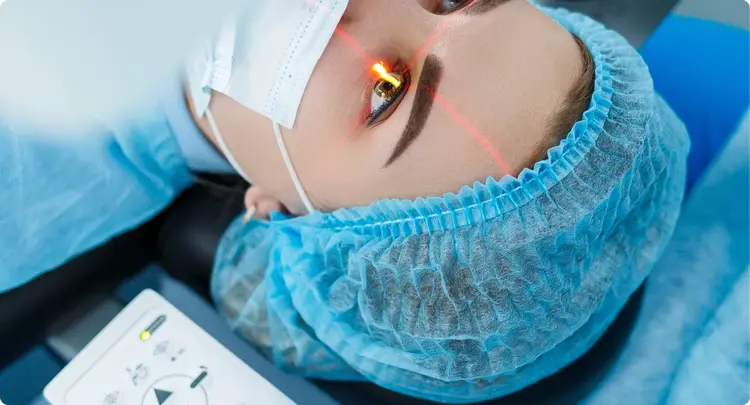

Eight percent of people may have glaucoma. That’s one in 12 customers who visit your optical shop — and half of them don’t even realize they have it. If your shop has an optometrist on staff but you’re not offering medical care, you could be missing out.
Keep reading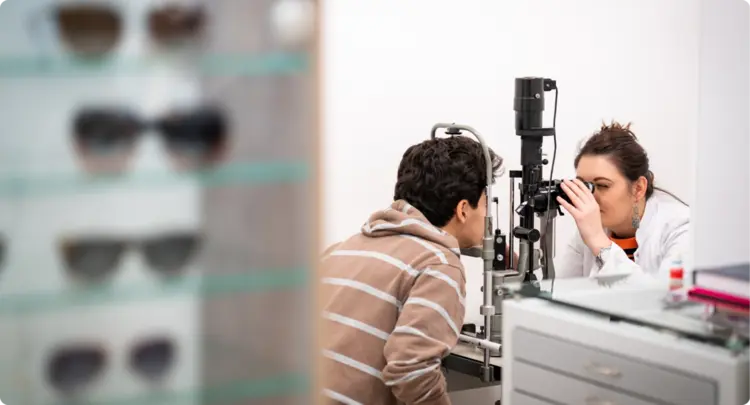

Optimize your eye clinic with smart office design strategies that enhance patient satisfaction and boost revenue. Discover insights from industry experts on maximizing space, integrating visual field test technology, and creating a patient-centered environment.
Keep reading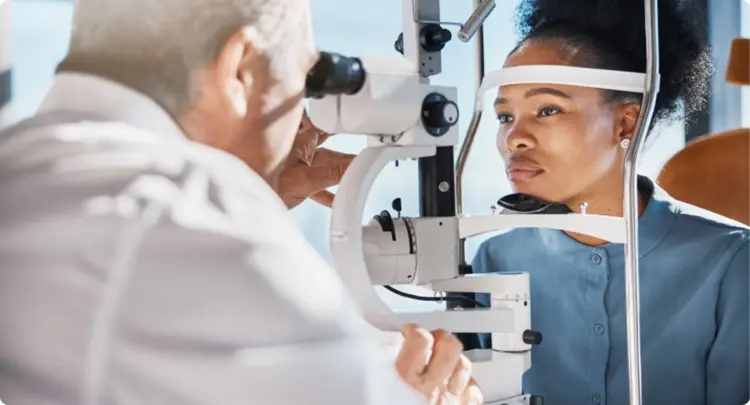

Retina specialists play an important role in diagnosing and managing complex eye conditions such as diabetic retinopathy and age-related macular degeneration. Monitoring these conditions requires precise and reliable visual field testing – often a challenge due to spacel limitations, cost, and patient accessibility concerns.
Keep reading

Three Million Eye Exams Completed Using Virtual Field Technology, Reflecting Growing Need for Early Detection and Accessible Diagnostics
Keep reading

As an eye care professional, you play a significant role in road safety. Licensed drivers’ vision requirements differ between Canadian provinces, and Ontario’s Ministry of Transportation (MTO) has established clear guidelines and standards that all drivers must meet. By administering a visual field exam, you fulfil a legal obligation and keep drivers safe.
Keep reading

Owning and managing an eyecare practice can be both professionally rewarding and personally fulfilling. However, practice owners in the eyecare industry encounter a unique set of challenges that require a blend of clinical expertise and entrepreneurial acumen. In this blog post, we'll explore the top challenges faced by eyecare practice owners and offer insights on how to tackle them.
Keep reading

Maximizing return-on-investment (ROI) is a critical focus for eye care practices seeking financial stability and long-term growth. Strategic decisions in operations, technology, and patient care play a pivotal role in improving profitability and efficiency. By investing in high-ROI equipment, optimizing workflows, and enhancing patient services, practices can achieve sustainable financial success while elevating the patient experience.
Keep reading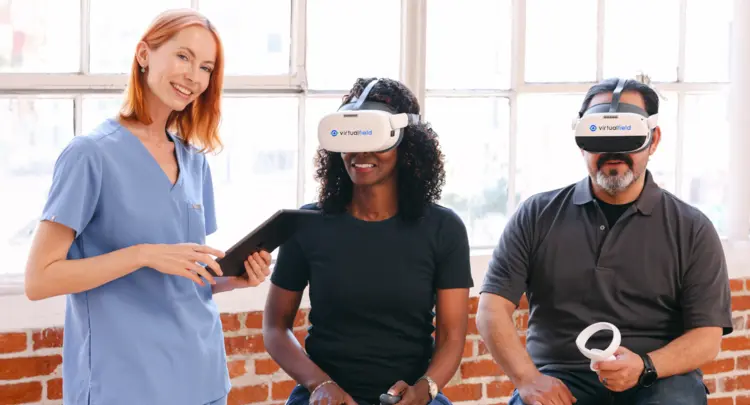

Advancements in technology are reshaping how practitioners approach patient care. A recent study published by Investigative Ophthalmology & Visual Science revealed that 75% of ophthalmologists believe adopting new technologies will improve their practice.
Keep reading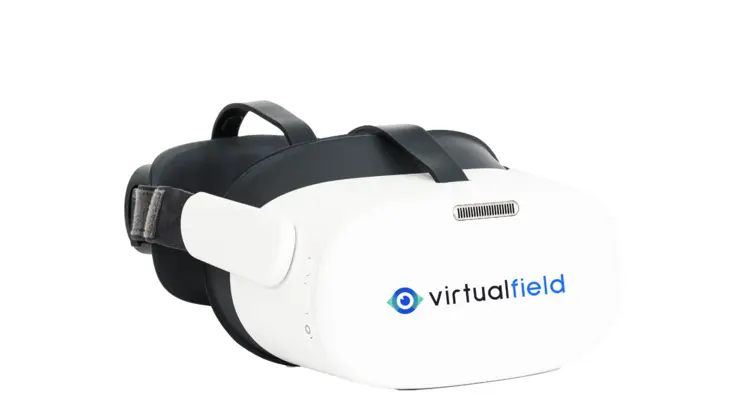

As eye care technology evolves, practitioners are increasingly faced with the decision between adopting portable, efficient solutions or sticking with trusted, traditional methods. Virtual visual fields have emerged as a game-changer, offering a sleek alternative to the longstanding tabletop devices like the Humphrey Field Analyzer.
Keep reading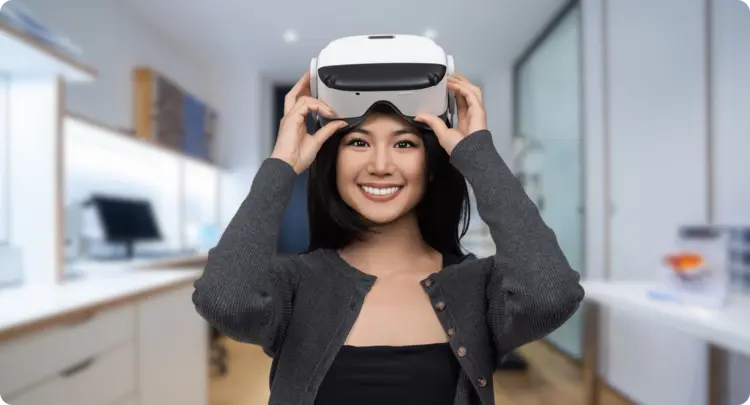

In today’s fast-paced healthcare environment, eye care professionals face the challenge of delivering excellent patient care while balancing efficiency and quality. With rising patient demands and the need for accurate, timely diagnosis, the pressure to streamline workflows without compromising care is greater than ever. Enter Virtual Field, a cutting-edge solution designed to help optometrists, ophthalmologists, and other eye care providers meet these demands.
Keep reading

As the global population ages, the demand for eye care services is poised to grow significantly. By 2050, the number of individuals aged 60 and older is projected to double, bringing age-related eye conditions to the forefront of healthcare concerns. For ophthalmologists, understanding this shift is crucial to providing optimal care. Conditions such as cataracts, glaucoma, age-related macular degeneration (AMD), and diabetic retinopathy are expected to rise sharply as the population ages.
Keep reading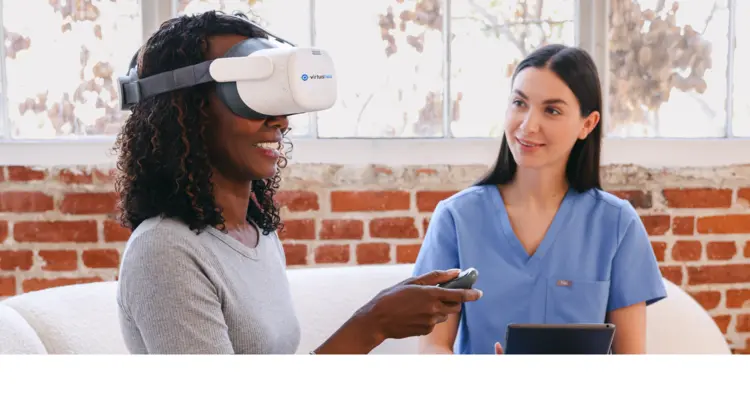

Visual field (VF) testing plays a pivotal role in modern optometry and ophthalmology, providing critical insights into a patient's visual function and aiding in the diagnosis and management of various ocular and neurological conditions. Among the most widely used VF tests are the 24-2 and 24-2C. The 24-2 exam is derived from the 30-2 protocol and evaluates the central 24 degrees of the retina with fixation centered on the fovea.
Keep reading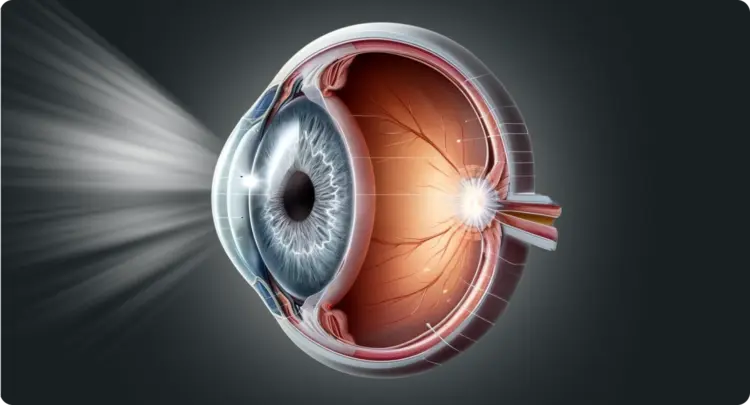

Advanced Technology Intraocular Lenses (ATIOLs), including Extended Depth of Focus (EDOF) lenses and Multifocal Intraocular Lenses (MFIOLs), represent significant advancements in cataract and refractive surgery. Designed to provide a broader range of vision, these lenses improve patients' visual quality and reduce dependence on corrective eyewear.
Keep reading

Starting a cold start eye care practice is both an exciting and demanding venture for any eye care professional. The journey is filled with challenges, such as securing funding, navigating regulatory requirements, and establishing a patient base from scratch. However, these obstacles are balanced by the unique opportunities to shape the practice according to your vision, build strong community ties, and provide personalized care that meets the specific needs of your patients. As you embark on this path, it's essential to be prepared for the complexities of starting anew, while also being open to the rewards that come with building a successful practice from the ground up.
Keep reading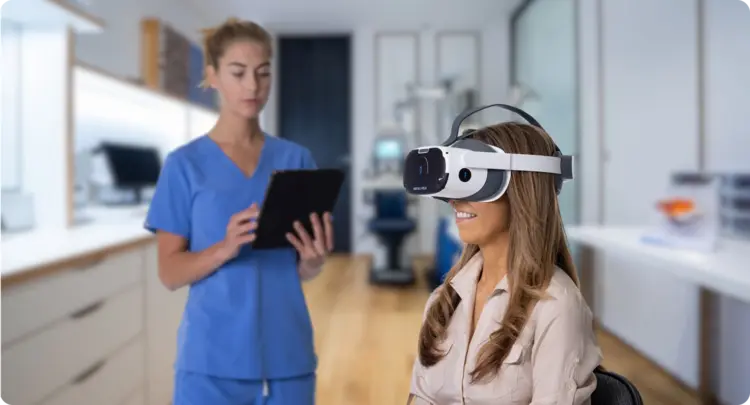

When it comes to visual field testing, patients with disabilities often face challenges that can compromise the accuracy and effectiveness of traditional assessment methods. For instance, studies have shown that individuals with mobility impairments or cognitive disabilities are less likely to complete visual field tests successfully, leading to potential misdiagnoses or incomplete data. Introducing virtual reality (VR) field testing offers a revolutionary approach to overcome these barriers, providing a more inclusive and adaptable solution.
Keep reading

The Canadian healthcare system offers publicly funded medical services, including eye care. However, coverage details and billing procedures vary significantly across provinces. This article provides a comprehensive guide for optometrists, ophthalmologists, and other eye care professionals to navigate the intricacies of eye care billing in Canada.
Keep reading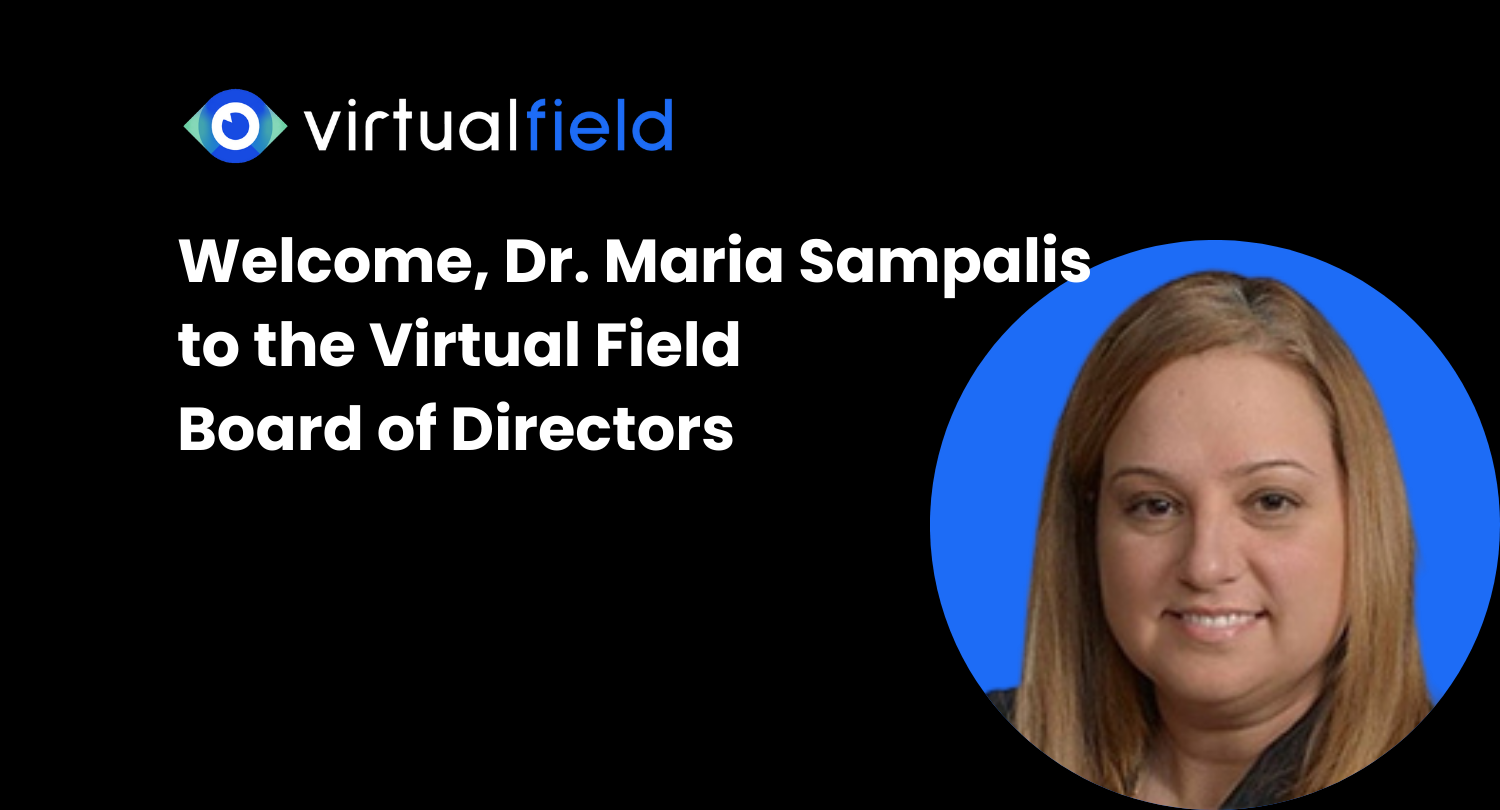

I’m pleased to announce that Dr. Maria Sampalis, a distinguished optometrist and industry thought leader, has joined the board of directors at Virtual Field. Dr. Sampalis’s extensive experience and innovative approach in eye care complements our mission to enhance the eye exam experience.
Keep reading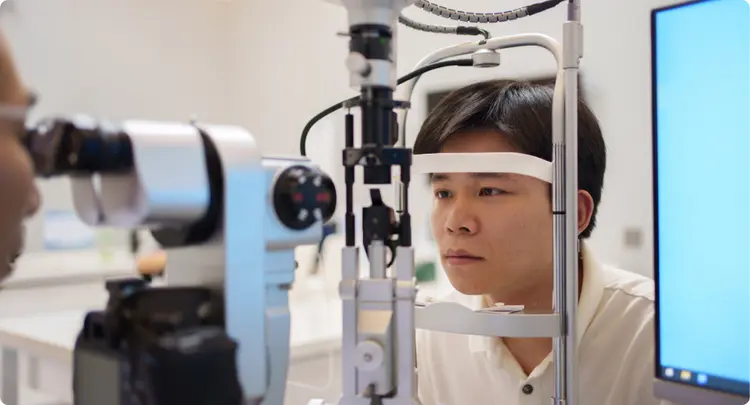

Imagine undergoing a medical test in a language you don't understand. This can lead to patient confusion and frustration at best, and inaccurate test results and missed diagnoses at worst. This is why it’s important for healthcare providers like optometrists and ophthalmologists to provide medical equipment audio instructions in multiple languages. It ensures patient comfort, compliance, and accurate results. This article will introduce the concept of multilingual audio instructions and their relevance to exceptional eye care.
Keep reading

We're pleased to partner with the Professional Eye Care Associates of America (PECAA), the nation's leading organization for independent eye care professionals.
Keep reading

The bustling state of New York presents a dynamic and evolving landscape in eye care. As eye care professionals navigate through this vibrant environment, they encounter unique challenges and opportunities that shape the delivery of eye health services. This article covers the importance of staying informed about prevalent eye diseases, regulatory changes, and emerging trends that significantly impact patient care. Understanding these factors is essential for eye care professionals to provide effective treatments, preventive measures, and holistic care to the diverse population of New York.
Keep reading

Perimetry, crucial in eye care, traditionally relies on tabletop perimeters but faces limitations in mobility and accessibility. Virtual perimetry, a portable and flexible option, actually complements tabletop devices by delivering accurate results with added accessibility and minimal overhead. This article dives into the transformative potential of virtual perimetry, exploring its benefits in improving diagnostic accuracy, streamlining workflows, and delivering patient-centric care, helping eye care professionals provide a more efficient and enjoyable experience.
Keep reading

Texas boasts a diverse and dynamic eye care landscape shaped by both challenges and opportunities. As we dive into the intricacies of eye care in the Lone Star State, it becomes evident that staying informed about prevalent eye diseases, regulatory changes, and emerging trends is paramount for optometrists, ophthalmologists, and other eye care professionals. This article aims to highlight the evolving landscape of eye care in Texas, shedding light on the trends that are shaping the industry's future.
Keep reading

I’m excited to announce that we will be showcasing our latest visual field testing experience at the American Optometric Association’s annual meeting held at Nashville’s Music City Center, from June 19-22, 2024. Since 2018, Virtual Field has pioneered the development and use of virtual reality technology to simplify and enhance visual field testing. Join us at this premier event to explore how our innovations can benefit your practice.
Keep reading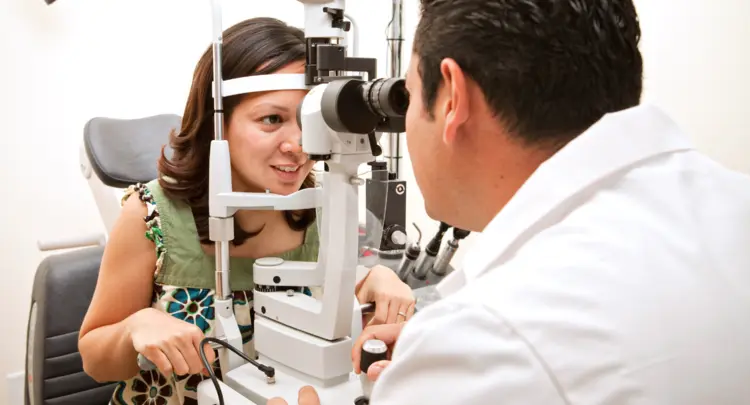

Eye care professionals encounter numerous challenges that test the efficiency and efficacy of their practices. From prolonged wait times to intricate diagnostic puzzles, the journey to optimal patient care demands strategic navigation through evolving technologies and clinical demands.
Keep reading

The optic nerve serves as the foundation of our sight, transmitting visual information from the eye to the brain. This intricate nerve translates light signals into electrical impulses, enabling us to perceive the world around us.
Keep reading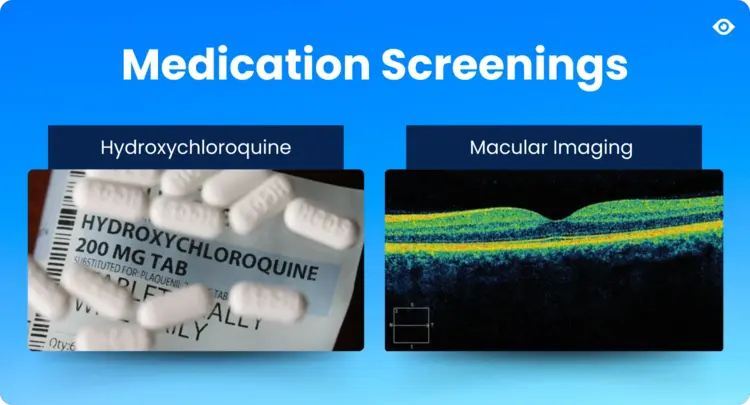

Hydroxychloroquine is widely used as a low-cost and effective treatment for rheumatoid arthritis, systemic lupus erythematosus, and many other dermatologic and rheumatologic/inflammatory conditions. While it is generally well tolerated by patients, its only major downside is the potential for retinal toxicity.
Keep reading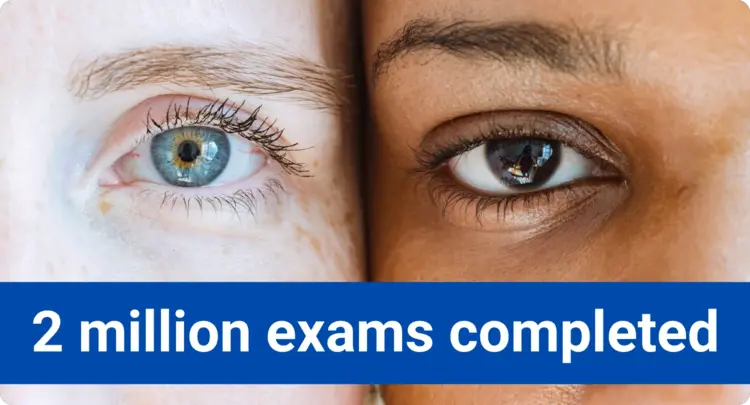

We are thrilled to announce another significant achievement at Virtual Field: surpassing two million patient exams conducted with our virtual visual field technology. This milestone reflects the transformative impact we’re making in the fields of ophthalmology and optometry.
Keep reading

Visual field testing plays a pivotal role in diagnosing and managing various eye conditions. To ensure the accuracy and reliability of these tests, thorough training of technicians is paramount. This article outlines essential strategies for technicians conducting visual field tests, covering patient preparation, equipment setup, and result interpretation. By following these best practices, eye care professionals can ensure accurate assessments and improved patient outcomes.
Keep reading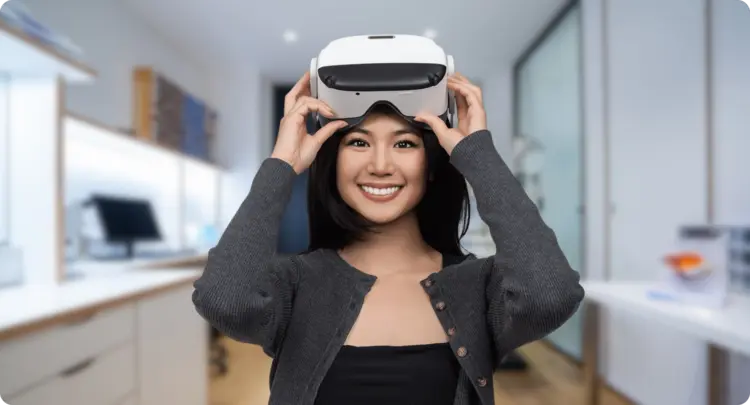

Within the field of ophthalmology, achieving accurate and efficient visual field testing is paramount. Virtual Field addresses this need by offering a virtual reality testing experience designed to enhance patient care.
Keep reading

Today marks a milestone for Virtual Field and, we believe, the Canadian eye care community. We’re excited to share that our pioneering virtual visual field testing experience is now available in every province and territory in Canada. This is another major step in our journey to revolutionize eye exams for patients, doctors, and technicians alike.
Keep reading

Eye health is a critical aspect of overall well-being, with vision playing a vital role in daily life. While eye health is important for everyone, there are unique considerations when it comes to women's eye health. For example, hormonal changes throughout a woman's life can significantly impact vision, making it essential for healthcare professionals to understand these dynamics.
Keep reading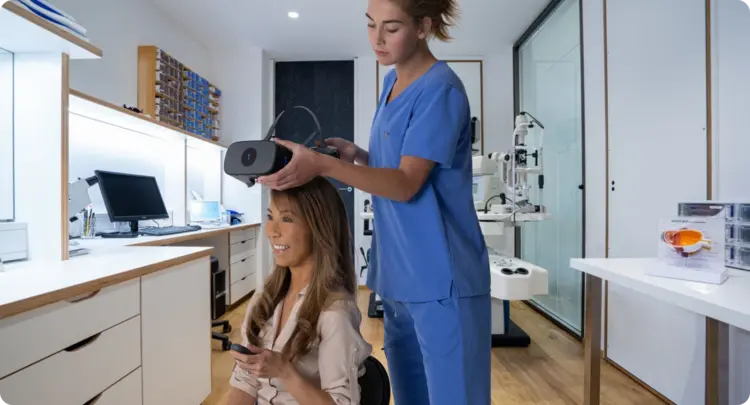

Healthcare professionals use visual field testing to diagnose and monitor conditions such as glaucoma, stroke, macular degeneration, and multiple sclerosis through automated perimetry. Traditional visual field tests subject the patient to an uncomfortable test, and they can be a challenge for patients who are elderly, disabled, or have other conditions. Through virtual visual field technology, new visual field machines can alleviate some of the stressors and inefficiencies with traditional visual field testing.
Keep reading

Eye care professionals consistently strive to enhance their diagnostic capabilities to provide optimal vision health for their patients. One crucial tool in their arsenal is the Esterman visual field test, a well-established and reliable method for evaluating peripheral vision.
Keep reading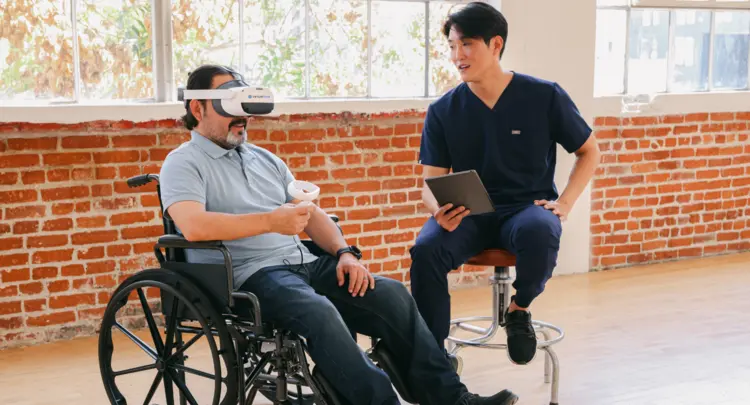

As you know, accurate measurement of the visual field is crucial for diagnosing and managing various eye diseases, including glaucoma, stroke, and brain tumors. However, traditional tabletop perimeters often pose accessibility challenges for patients with wheelchairs, limited mobility, or visual impairments. Recognizing the need for an inclusive solution, Virtual Field (VF) emerged in 2018 utilizing virtual reality (VR) headsets to offer a more accessible and more comfortable alternative to traditional testing methods.
Keep reading

Exciting news! We're officially unveiling the 24-2C exam on Virtual Field at SECO2024 in Atlanta, and it represents a significant advancement in VR visual field testing. This exam enables sharper detection and monitoring of eye diseases with ten extra test points for more precise diagnosis.
Keep reading

In eye care, mastering the language of billing and coding unlocks the door to efficient practice management and timely reimbursement. This comprehensive guide empowers ophthalmologists, optometrists, and their teams to navigate the intricacies of CPT, ICD-10-CM, and HCPCS codes, optimize claim submission, and maintain compliance, ensuring your focus remains where it truly matters: delivering exceptional care to your patients. Dive into this resource and equip your practice with the tools to navigate the financial landscape with confidence.
Keep reading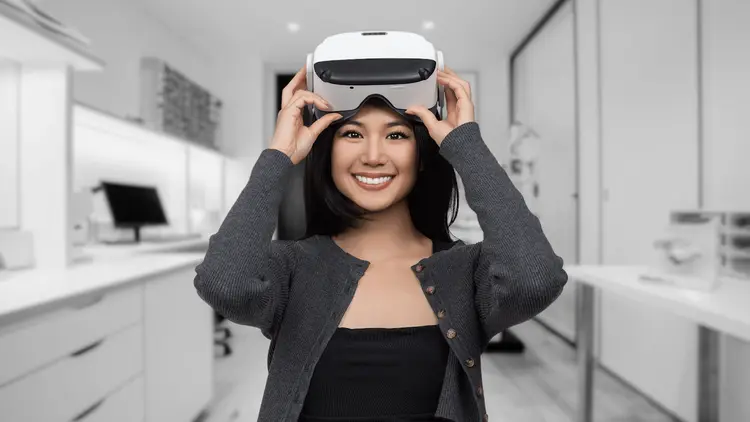

In the fast-paced world of eye care technology, it's paramount that we not only innovate but also ensure that our innovations adhere to the highest standards of quality.
Keep reading

Clinical research plays a pivotal role in advancing eye care and improving patient outcomes. From understanding the intricate mechanisms of eye diseases to developing innovative treatments and diagnostic tools, eye care research paves the way for a future where vision loss is not a barrier to living a full and productive life - and eye care professionals stand at the forefront of this landscape.
Keep reading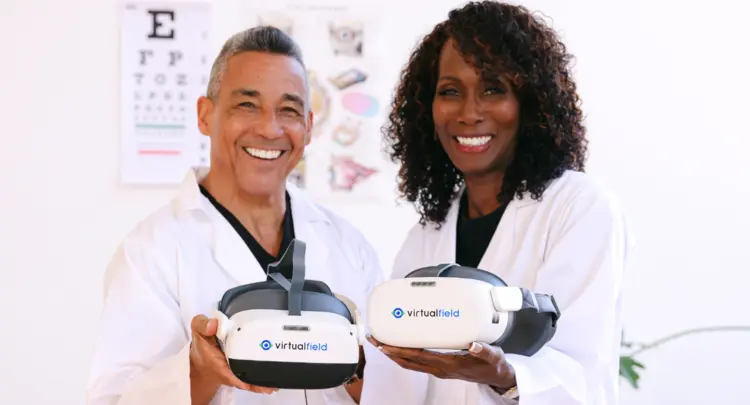

While the need for eye care services is on the rise, the eye care industry grapples with a shortage of ophthalmologists and ophthalmic technicians. Consequently, medical optometrists have emerged as key players in bridging this gap and delivering comprehensive care. Various technological innovations, such as virtual visual field testing, are instrumental in assisting optometrists in fulfilling this crucial role.
Keep reading

The world of optometry has undergone a transformative journey in 2023, marked by groundbreaking advancements and a fervent commitment to enhancing eye care. From technological marvels to community collaboration, let's dive into the year's highlights that have shaped the continuously evolving landscape of optometry.
Keep reading

The field of ophthalmology is undergoing a transformative revolution, thanks to the rapid advancements in artificial intelligence (AI). Large language models (LLMs) have been integrated into AI chatbots, tools for taking notes during clinical encounters and are being employed for drafting responses to patient inquiries. AI systems have also been FDA-cleared and are being used to screen for diabetic retinopathy. Lastly, AI-assisted tools are being developed to improve the safety and efficacy of ophthalmic surgical procedures.
Keep reading

The world of optometry is evolving rapidly, and so is the profile of the modern optometry student. Today's students are not only passionate about providing exceptional eye care but are also equipped with a diverse set of skills and knowledge to meet the challenges of a changing eye care landscape. In this blog post, we'll explore the challenges future eye doctors face today, the skills they need, and how they are preparing to shape the future of vision care.
Keep reading

Ptosis is a relatively common condition, although the exact prevalence is not known. When surgical correction is indicated, understanding ptosis and the Superior 36 Visual Field Test can help provide needed documentation. This article briefly explains what ptosis is, the different types of ptosis, the ptosis visual field-testing process, and how newer technologies using the Virtual Field headset can help with management.
Keep reading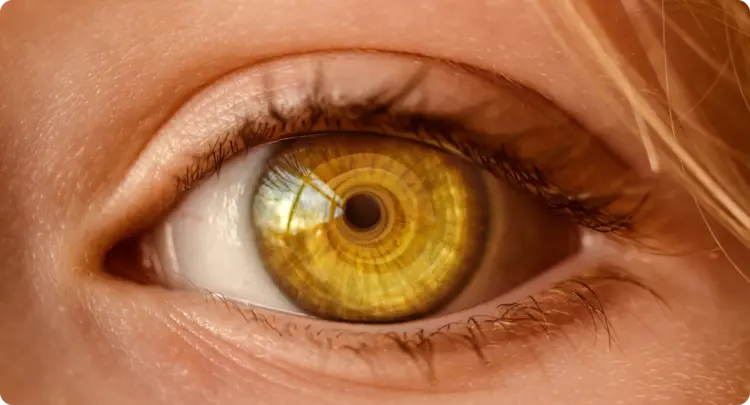

Automated pupillometry has dramatically improved pupillometry exams. This new technology has taken pupil examination from a cumbersome diagnostic tool with a high user error rate to a quick, accurate exam that helps diagnose multiple medical conditions. With the accelerating use of automated pupilometers, many are left wondering, what's new with pupillometry exams?
Keep reading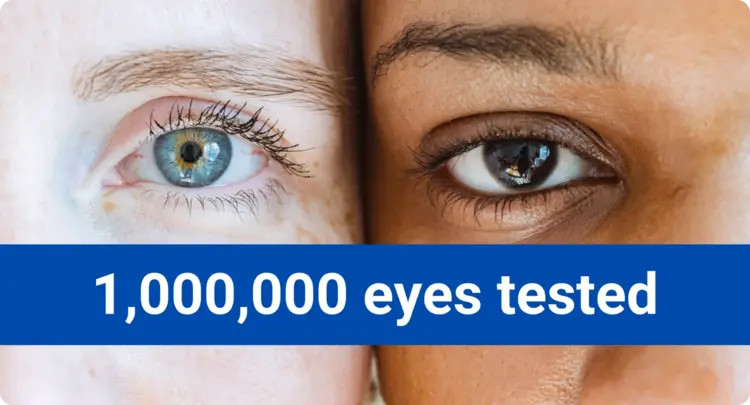

We are pleased to be exhibiting at the esteemed AAO 2023 - American Academy of Ophthalmology Conference this upcoming weekend. In conjunction with this event, we’re announcing that we've reached a significant milestone that fills us with immense pride and gratitude.
Keep reading

We live in a remarkable era, where swift technological leaps are making waves across industries, and vision care is very much a part of this revolution.
Keep reading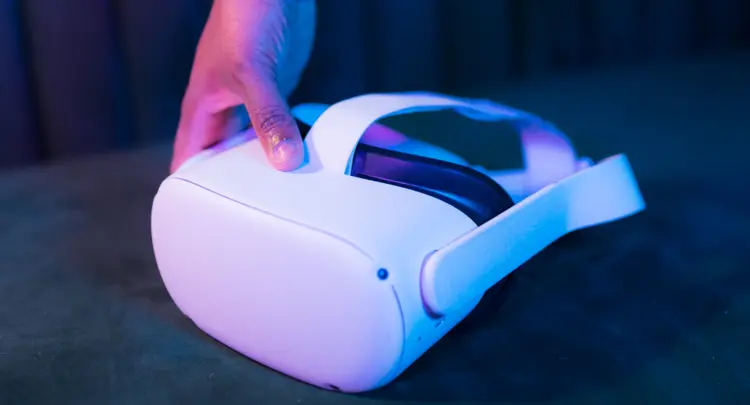

Technology adoption is disconcerting but exciting. We’ve gone from traveling peddlers selling glass eye spectacles to lenses with corrected refractive errors made of plastic. And from the irretractable blindness of glaucoma in the early centuries to finding a way to diagnose the disease, followed by surgical and pharmacological care. Are Virtual Field’s portable and patient-friendly headsets the next evidence-based technological innovation to break barriers and shape the future?
Keep reading

In 2018, Virtual Field introduced an exceptional eye examination experience that has continued to evolve and redefine eye care. Eye care professionals, including ophthalmologists and optometrists, have harnessed the power of Virtual Field's BOLT algorithm to examine patients more efficiently, comfortably, and accurately. In this blog, we'll delve into the innovative BOLT algorithm developed by Virtual Field and explore how it has been transforming eye examinations since its introduction.
Keep reading

In the realm of eye care, effective patient education plays a pivotal role in ensuring optimal treatment outcomes and patient satisfaction. This article delves into the key strategies for effective communication in eye care. We'll discuss how providers can elevate their patient education efforts, drawing insights from experts in the field.
Keep reading

There are currently fewer than 60,000 ophthalmic technicians to work with over 19,000 practicing ophthalmologists in the United States, making the task of finding and retaining skilled personnel quite challenging. Once you have your technician team in place, retaining the team is paramount for the continued success of your ophthalmology practice.
Keep reading

Over the past few years, there have been new technological advances in the world of ophthalmology. With virtual reality perimetry (VRP), virtual reality visual field testing has dramatically improved for patients and technicians. This blog post compares and contrasts VRP and tabletop analyzers. It also discusses the benefits of using a VRP and critical factors to consider when choosing a VRP versus a tabletop analyzer.
Keep reading

When it comes to best practices for operating in the U.S. healthcare system, one thing that providers all have in common is their focus on patient experience. By providing stellar care in a timely and efficient manner that respects both the patient’s and the physician’s time, you can offer excellent care while maintaining a consistent intake of patients throughout the day.
Keep reading